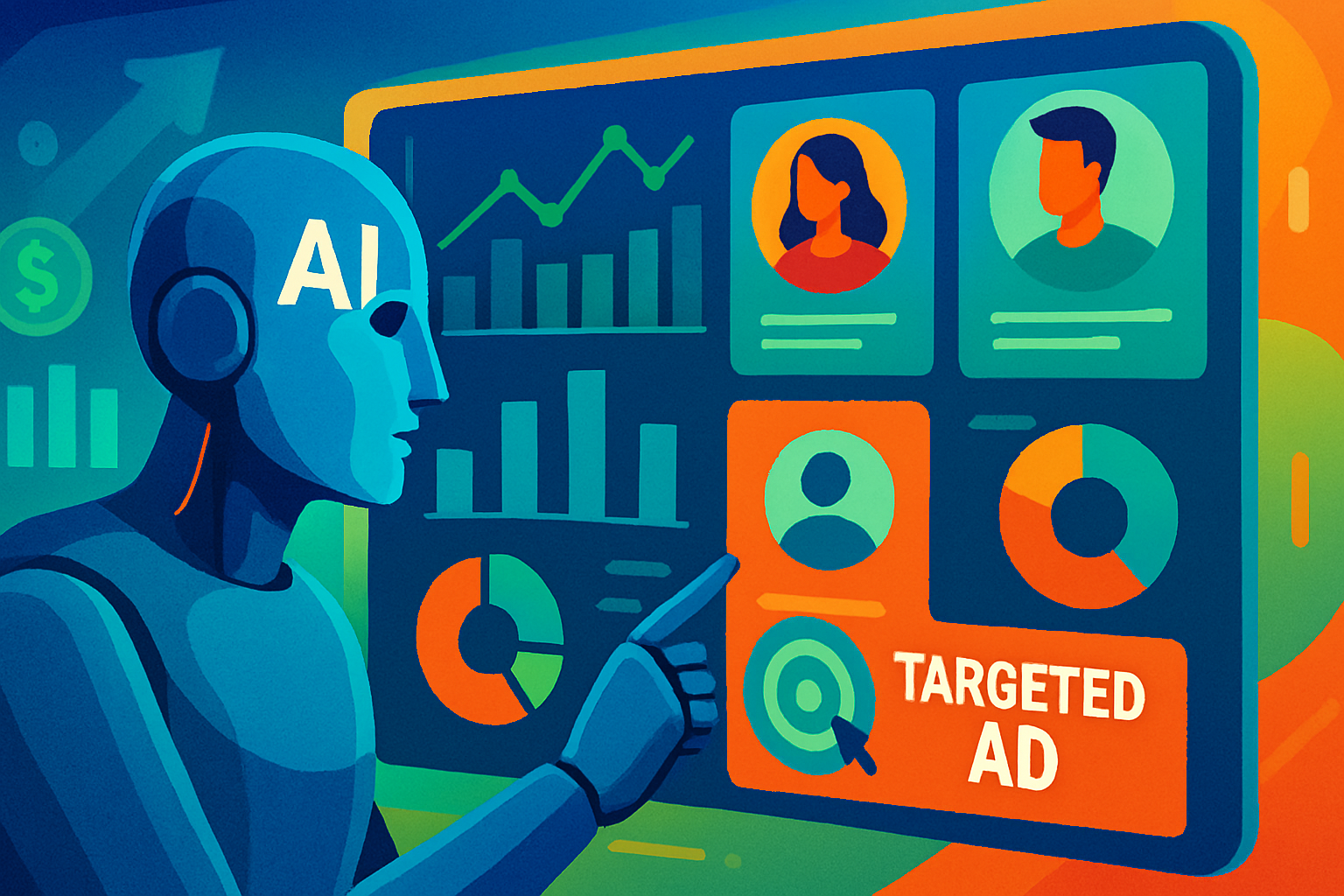Article 14: AI in Marketing: Personalization, Content Creation, and Predictive Analytics (2025)
Meta Title: AI in Marketing (2025): Personalization, Content & Analytics Tools
Meta Description: Explore how AI is transforming marketing with hyper-personalization, automated content creation, predictive analytics, and enhanced customer insights. Discover top AI tools for 2025.
Target Keywords: AI in marketing, AI marketing tools, AI content creation, marketing personalization AI, predictive analytics marketing
The AI-Driven Campaign: Revolutionizing Marketing with Personalization, Content Creation, and Predictive Analytics in 2025
Marketing has always been about understanding and connecting with customers. In 2025, Artificial Intelligence (AI) is supercharging this mission, offering unprecedented capabilities to personalize experiences at scale, automate content creation, predict consumer behavior, and optimize campaigns for maximum impact. AI is no longer a niche tool for tech-savvy marketers but a fundamental component of modern marketing strategy, enabling businesses to engage with their audiences in more meaningful and effective ways.

How AI is Reshaping the Marketing Landscape
- Hyper-Personalization at Scale:
- Functionality: AI algorithms analyze vast amounts of customer data – including demographics, browsing history, purchase behavior, social media activity, and real-time interactions – to create highly detailed customer profiles. This allows marketers to deliver individually tailored messages, product recommendations, and offers across various channels.
- Impact: Significantly improves customer engagement, conversion rates, and loyalty by making customers feel understood and valued.
- AI-Powered Content Creation & Curation:
- Functionality: AI tools can generate various forms of marketing content, including blog post drafts, social media updates, email copy, ad headlines, and even video scripts. AI can also curate relevant third-party content to share with audiences.
- Impact: Speeds up content production, helps overcome writer’s block, allows for A/B testing of different content variations, and enables marketers to maintain a consistent content flow.
- Examples: Jasper (formerly Jarvis), Copy.AI, Writesonic, Surfer SEO (for SEO-optimized content).
- Predictive Analytics for Customer Behavior & Campaign Optimization:
- Functionality: AI models can forecast future customer behavior, such as likelihood to purchase, churn probability, or lifetime value. They can also predict the performance of different marketing campaigns, channels, or messages, allowing for proactive optimization.
- Impact: Enables marketers to make data-driven decisions, allocate budgets more effectively, target the right customers with the right message at the right time, and improve overall campaign ROI.
- Intelligent Customer Segmentation:
- Functionality: AI can identify subtle patterns and relationships in customer data to create more nuanced and dynamic customer segments than traditional methods. This goes beyond simple demographics to include behavioral and psychographic factors.
- Impact: Allows for more targeted and relevant marketing campaigns, leading to higher engagement and conversion rates.
- AI-Driven SEO and SEM:
- Functionality: AI tools assist with keyword research, content optimization for search engines, competitor analysis, automated bidding for paid search (SEM), and tracking search performance. NLP helps in understanding search intent better.
- Impact: Improves website visibility in search results, drives more organic traffic, and optimizes paid search spend.
- Chatbots and Conversational AI for Customer Engagement:
- Functionality: AI-powered chatbots provide 24/7 customer support, answer frequently asked questions, qualify leads, and guide users through sales funnels on websites and messaging platforms.
- Impact: Enhances customer experience through instant responses, frees up human teams for more complex interactions, and can increase lead generation.
- Programmatic Advertising Optimization:
- Functionality: AI algorithms automate and optimize the buying of digital advertising space in real-time, targeting specific audiences with relevant ads across various platforms to maximize ROI.
- Impact: More efficient ad spend, better targeting, and improved campaign performance.
Benefits of AI in Marketing
- Deeper Customer Insights: AI uncovers patterns and preferences that humans might miss.
- Enhanced Customer Experience: Personalization and timely support lead to greater satisfaction.
- Increased Efficiency & Productivity: Automation of repetitive tasks frees up marketers for strategic work.
- Improved ROI: Better targeting, optimized campaigns, and efficient spending lead to higher returns.
- Greater Agility: AI enables marketers to adapt quickly to changing market trends and customer behaviors.
Challenges and Ethical Considerations
- Data Privacy: The use of vast amounts of customer data for personalization raises significant privacy concerns. Marketers must be transparent and comply with regulations like GDPR and CCPA.
- Algorithmic Bias: If training data is biased, AI marketing tools can perpetuate stereotypes or unfairly target certain demographics.
- The “Creepiness” Factor: Overly aggressive personalization can sometimes feel intrusive to customers.
- Job Roles Evolution: AI will automate some marketing tasks, requiring marketers to develop new skills focused on strategy, creativity, and AI tool management.
- Authenticity: Ensuring that AI-generated content still resonates authentically with the brand voice and audience.
The Future of AI in Marketing
AI will become even more deeply embedded in all aspects of marketing. We can expect more sophisticated AI that can understand customer emotions, generate highly creative and context-aware content, and orchestrate seamless omnichannel customer journeys. The focus will likely shift towards a collaborative model where AI handles the data analysis and automation, while human marketers provide the strategic direction, creative vision, and ethical oversight.
For businesses looking to thrive in 2025 and beyond, embracing AI in marketing is not just an option but a necessity for staying competitive and relevant in an increasingly data-driven world.
Leave a Reply